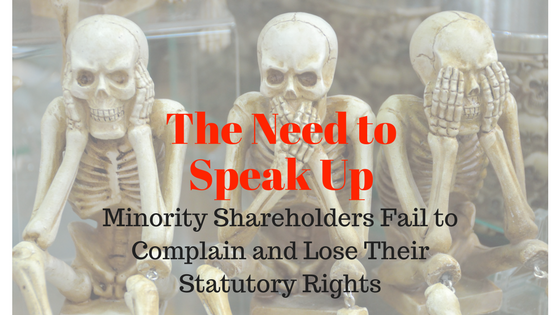 It was the stuff of which a good minority oppression claim is easily cooked up. The party in control of the corporation had used the corporate bank accounts as his personal piggy bank while operating a competing business, paid himself inflated office rents and bankrolled an extra-marital affair with money taken from the business.
It was the stuff of which a good minority oppression claim is easily cooked up. The party in control of the corporation had used the corporate bank accounts as his personal piggy bank while operating a competing business, paid himself inflated office rents and bankrolled an extra-marital affair with money taken from the business.
None of that, however, could carry the day in a lawsuit brought by the minority shareholders of a New Jersey corporation because they waited years to complain.








 Is an intractable deadlock among the shareholders good grounds to force the sale of a large, successful corporation? That was the issue before the Delaware Supreme Court in a case in which the trial court’s decision to sell the business as a going concern – over the objection of one shareholder –was affirmed by the Supreme Court.
Is an intractable deadlock among the shareholders good grounds to force the sale of a large, successful corporation? That was the issue before the Delaware Supreme Court in a case in which the trial court’s decision to sell the business as a going concern – over the objection of one shareholder –was affirmed by the Supreme Court.


